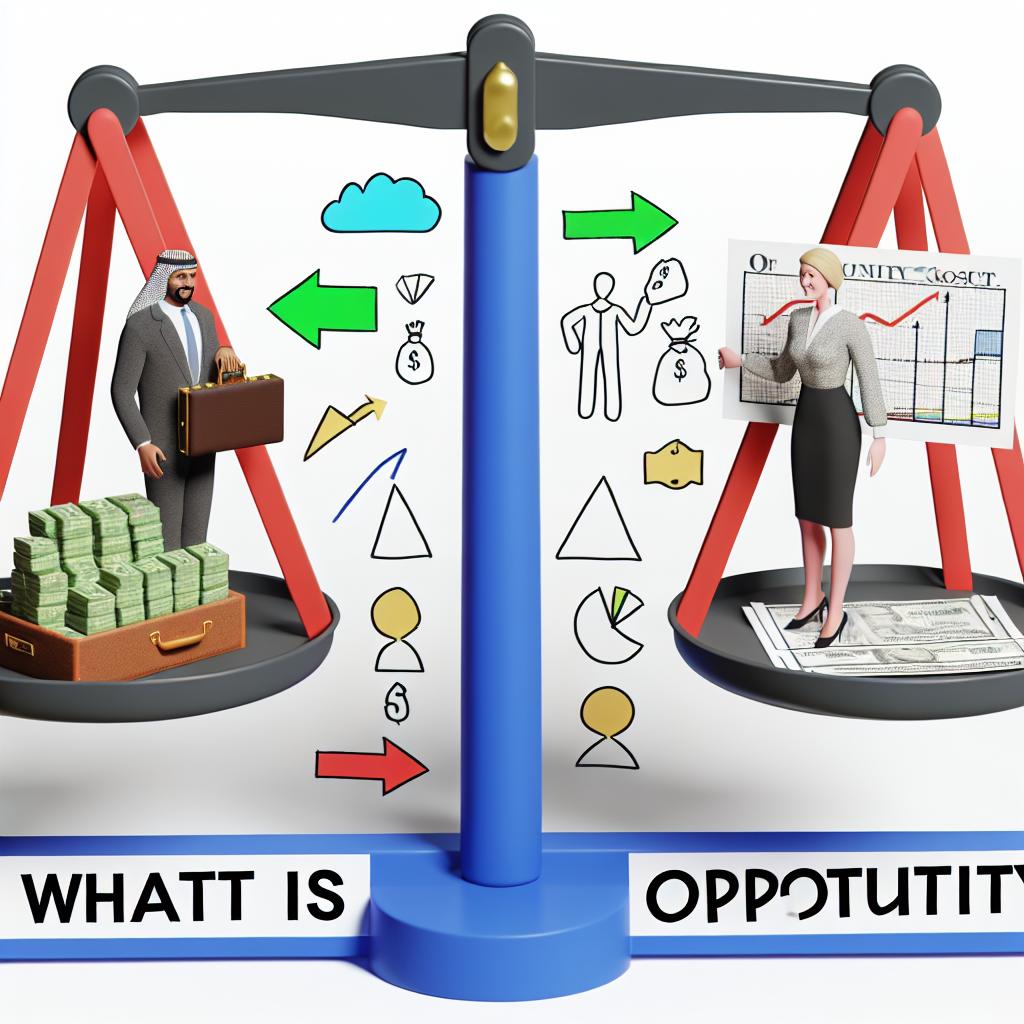What is Opportunity Cost in Economics?
- Written by: admin
- Category: Uncategorized
- Published: June 29, 2025

Understanding Opportunity Cost in Economics
In the realm of economics, the concept of opportunity cost is a pivotal element in decision-making processes. It represents the benefits or value one misses out on when choosing one alternative over another. Understanding opportunity cost is essential for economic agents, including individuals, businesses, and governments, as it aids in making informed choices.
Defining Opportunity Cost
Opportunity cost can be defined as the value of the next best alternative foregone when a decision is made. It is not just about financial costs; instead, it encompasses any kind of profit, benefits, or value that one forgoes. Unlike explicit costs, which involve direct monetary transactions, opportunity cost involves the evaluation of all available alternatives to assess the trade-offs.
The Importance in Resource Allocation
In economics, resources are often limited, and thus, the decision on how to allocate them effectively depends heavily on understanding opportunity cost. For instance, if a company decides to spend resources on developing a new product rather than improving an existing one, the opportunity cost is the potential profit it might have earned from enhancing the current product line. This concept extends beyond financial returns, covering factors like time, labor, and expertise, which are crucial for optimizing resource allocation.
Applications in Personal Decisions
On an individual level, opportunity cost plays a crucial role in various personal decisions. For example, choosing to spend money on a vacation means those funds cannot be invested or spent on other goods and services. Similarly, pursuing further education may involve the opportunity cost of lost income during that time period. More broadly, when individuals decide how to spend their time, such as choosing between leisure activities and part-time work, they are inherently considering the opportunity cost of their choices.
Examples in Business Context
Businesses frequently face scenarios where understanding opportunity cost can significantly impact their strategic decisions:
Investment Decisions: When a company decides to invest in one project over another, the foregone profits from the rejected project(s) become the opportunity cost. This requires evaluating potential returns and associated risks. For instance, a firm might choose to expand its manufacturing capacity instead of investing in new technology. The future benefits of the technological investment represent the opportunity cost of this decision.
Production Choices: Firms often need to decide which products to produce with their limited resources. The opportunity cost is the value of the products that are not produced. For example, if a factory allocates its resources to manufacture laptops instead of smartphones, the profits from unproduced smartphones constitute the opportunity cost.
The Role in Government Policy
Governments also must consider opportunity costs when allocating budgets across various sectors such as healthcare, education, and defense. A decision to allocate more funds to infrastructure might result in an opportunity cost of not enhancing healthcare services. In policy-making, understanding these trade-offs assists in crafting policies that balance societal needs with available resources.
Socio-Economic Implications
Opportunity cost doesn’t only affect direct economic decisions; it has broader implications on socio-economic planning. By recognizing opportunity costs, policymakers can prioritize sectors that promise the greatest aggregate benefit to society. For example, investing in education might lead to long-term economic growth, but the opportunity cost might be immediate infrastructure developments.
Limitations of Opportunity Cost
While opportunity cost is a valuable concept, it does have limitations due to subjective valuation and the challenge of measuring intangible and future benefits accurately. Estimations can be complex, leading to potential inaccuracies in decision-making frameworks. Moreover, opportunity costs are often only apparent with hindsight, complicating accurate predictions at the moment a decision is made.
Conclusion
Understanding opportunity cost is crucial for making rational and informed economic decisions. Whether it’s about personal budgeting or corporate investment, acknowledging what is sacrificed in favor of a chosen path enables better strategic planning. To further grasp opportunity cost concepts, explore more resources from trusted economic sites like Investopedia or The Economic Times.
By integrating opportunity cost analysis into decision-making processes, individuals and organizations can enhance their capacity to make choices that optimize their available resources and maximize potential benefits. Opportunity cost urges decision-makers to think critically about scarcity and prioritization, ultimately fostering a more efficient allocation of resources at every level, from personal finance to global economic policy.
To deepen your understanding of opportunity cost and its profound implications on decision-making, continuing education in economic theory and principles is valuable. Many universities and online platforms offer comprehensive courses on this subject, laying a solid groundwork for mastering economic strategy. By equipping themselves with this knowledge, individuals can navigate complex economic landscapes with greater confidence and insight, ensuring that their decisions align with long-term objectives.
Indeed, taking time to reflect on the less visible costs of our choices encourages a more nuanced perspective on economic decisions. This recognition goes beyond simple cost-benefit analyses, urging a broader view that considers not just immediate gains but also long-term impacts and opportunities missed. Through consistent practice and incorporation into strategic planning, the concept of opportunity cost can transform into an invaluable tool in both personal and professional arenas. It provokes deeper, more informed thinking, ultimately leading to outcomes that better serve the growth and sustainability aspirations of all economic participants.
This article was last updated on: June 29, 2025

